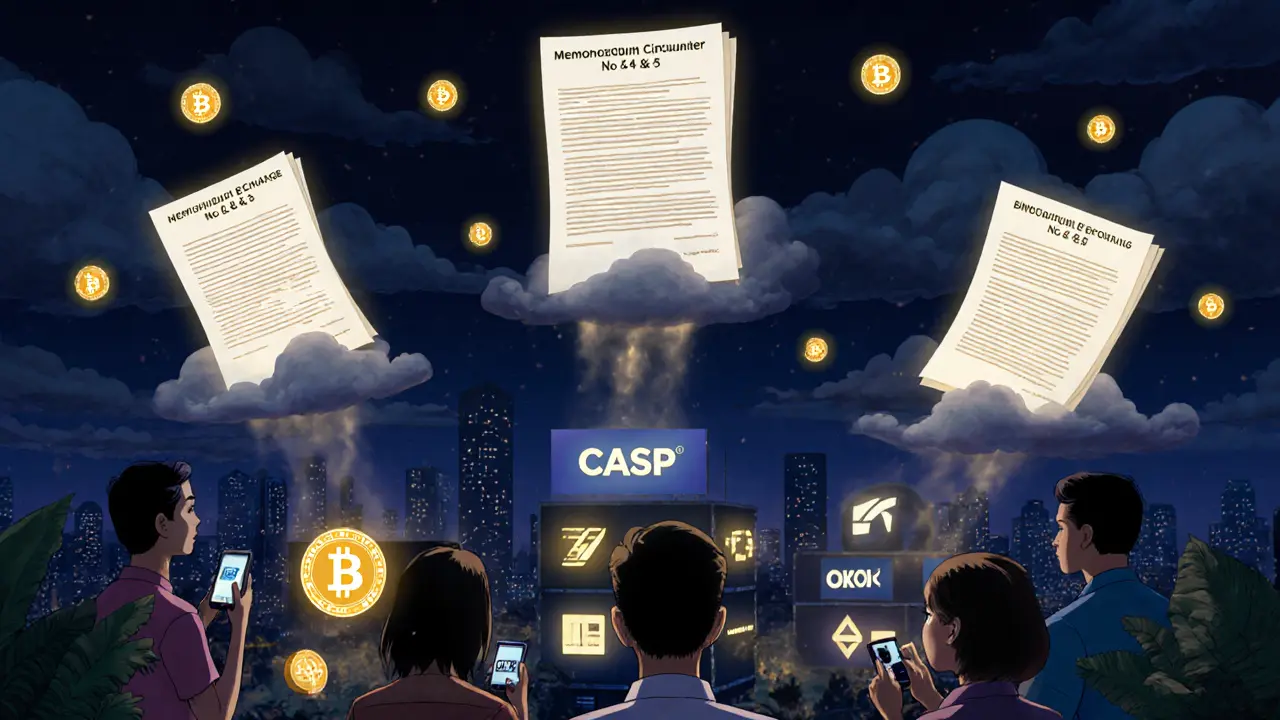The SEC Philippines launched strict crypto enforcement in 2025, requiring all exchanges to register as CASPs or face blocking. Learn what’s banned, who’s affected, and how to stay safe.
SEC Philippines: Crypto Regulations, Enforcement, and What It Means for Traders
When you trade crypto in the Philippines, you're not just dealing with market swings—you're navigating rules set by the SEC Philippines, the Securities and Exchange Commission of the Philippines, the government body that oversees financial markets and protects investors from fraud. Also known as Philippine SEC, it's the main authority deciding which tokens are legal, which exchanges can operate, and who gets shut down for breaking the rules. This isn't theoretical. In 2023, the SEC Philippines ordered 12 crypto platforms to stop operations because they were selling unregistered securities. That means if a project promises returns based on your investment—like staking rewards or token price growth—it might be classified as a security, and that triggers strict rules.
The crypto regulation Philippines, the set of laws and guidelines issued by the SEC Philippines to control how digital assets are offered, traded, and marketed to the public is still evolving, but one thing is clear: if you're running an exchange, launching a token, or promoting an airdrop in the Philippines, you need SEC approval. Platforms like Tatmas and AladiEx, which lack transparency, got flagged not just for being sketchy—but because they didn't register. Even legitimate projects like RingDAO or Polytrade have to prove they're not selling unregistered investment contracts. The SEC Philippines doesn't care if your token is called a "utility" or "gaming" coin—if it looks like an investment, they treat it like one.
And it’s not just about exchanges. The SEC crypto enforcement, the actions taken by the SEC Philippines to investigate, penalize, or shut down crypto projects that violate financial laws has gotten sharper. In 2024, they issued warnings about fake airdrops tied to Velas (VLX) and other tokens, telling users: "If you didn’t sign up through an official channel, it’s a scam." They’ve also cracked down on influencers who promote crypto projects without disclosing paid partnerships. This isn’t just about protecting money—it’s about trust. The SEC Philippines wants Filipinos to know that not every "high-yield" offer is real, and that the law is watching.
For you as a trader or investor, this means two things: first, always check if a platform is registered on the SEC Philippines website before depositing funds. Second, if a project promises guaranteed returns or claims to be "SEC-approved" without proof, walk away. The SEC Philippines doesn’t endorse any crypto—only regulated entities. That’s why posts here cover everything from fake airdrops to exchange risks: because understanding these rules isn’t optional. It’s how you avoid losing your money to a scam that looks legit.
Below, you’ll find real guides on what’s allowed, what’s banned, and how to protect yourself in the Philippines’ crypto landscape—no fluff, no hype, just what the SEC actually says and how it affects your wallet.

